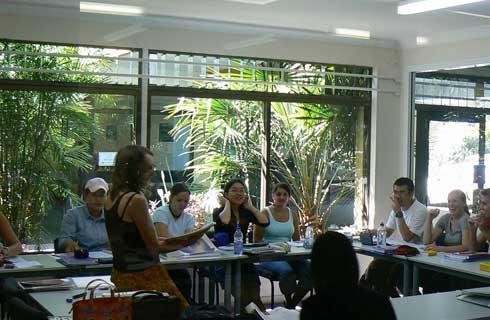Master of Science in Science, Technology and Public Policy

学历文凭
Masters Degree

专业院系
College of Liberal Arts

开学时间

课程时长

课程学费

国际学生入学条件
Complete an online graduate application. Refer to Graduate Admission Deadlines and Requirements for information on application deadlines, entry terms, and more.
Submit copies of official transcript(s) (in English) of all previously completed undergraduate and graduate course work, including any transfer credit earned.
Hold a baccalaureate degree (or US equivalent) from an accredited university or college.
Recommended minimum cumulative GPA of 3.0 (or equivalent).
Submit a current resume or curriculum vitae.
Two letters of recommendations are required. Refer to Application Instructions and Requirements for additional information.
Not all programs require the submission of scores from entrance exams (GMAT or GRE). Please refer to the Graduate Admission Deadlines and Requirements page for more information.
Submit two writing samples, one of which should be a statement of interest.
Submit a personal statement of educational objectives. Refer to Application Instructions and Requirements for additional information.
Have completed course work in calculus and statistics. Students may be required to take a course in data analysis or statistics course and an introductory calculus course, if not taken previously.
IELTS - 6.5
TOFEL ibt - 88
IDP—雅思考试联合主办方

雅思考试总分
6.5
- 雅思总分:6.5
- 托福网考总分:88
- 托福笔试总分:160
- 其他语言考试:PTE Academic 60
CRICOS代码:
申请截止日期: 请与IDP联系 以获取详细信息。
课程简介
相关申请
 预科
预科 奖学金
奖学金 实习机会
实习机会 在校学习
在校学习 跨境学习
跨境学习 校园授课-线上开始
校园授课-线上开始 在线/远程学习
在线/远程学习
开学时间&学费
学费信息仅供参考,请与IDP联系以获取详细信息
| 开学时间 | 时长 | 学费 | 地点 |
|---|
学校排名

世界排名601
数据源:
泰晤士高等教育世界大学排名
本校相关课程

土木工程技术理学学士
学历文凭
Bachelor Degree
开学日期
课程费用总额


计算机工程技术理学学士
学历文凭
Bachelor Degree
开学日期
课程费用总额


电气工程技术科学学士学位
学历文凭
Bachelor Degree
开学日期
课程费用总额


机电工程技术理学学士
学历文凭
Bachelor Degree
开学日期
课程费用总额


Bachelor of Science in Environmental Sustainability, Health and Safety (Co-op)
学历文凭
Bachelor Degree
开学日期
课程费用总额


机械工程技术科学学士学位
学历文凭
Bachelor Degree
开学日期
课程费用总额

其他相关课程

Public Policy Certificate
 普渡大学
普渡大学学历文凭
Advanced Certificate
开学日期
课程费用总额


Doctor of Philosophy in Public Policy and Administration - Science and Technology Policy
 乔治华盛顿大学
乔治华盛顿大学泰晤士高等教育世界大学排名:209
学历文凭
Ph.D.
开学日期
课程费用总额


Master of Public Policy / Master of Arts in Social Service Administration
 芝加哥大学
芝加哥大学学历文凭
Double Major Degree
开学日期
课程费用总额


Bachelor of Interdisciplinary Studies - Public Policy Advocacy
 路易斯安那州立大学-Shorelight
路易斯安那州立大学-Shorelight学历文凭
Bachelor Degree
开学日期
课程费用总额


公共政策与管理硕士-公共与非营利管理
 马萨诸塞大学阿默斯特分校
马萨诸塞大学阿默斯特分校学历文凭
Masters Degree
开学日期
课程费用总额


公共政策哲学博士-计划评估,公共管理和行政
 佐治亚理工学院
佐治亚理工学院泰晤士高等教育世界大学排名:41
学历文凭
Ph.D.
开学日期
课程费用总额











